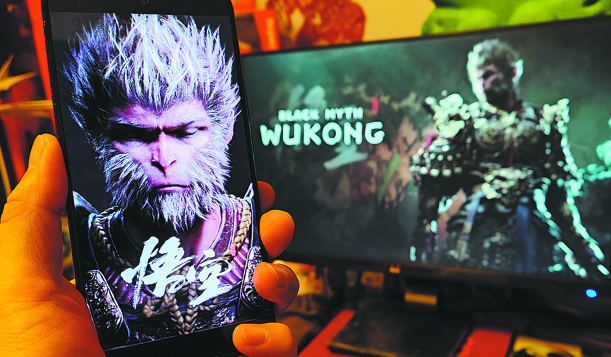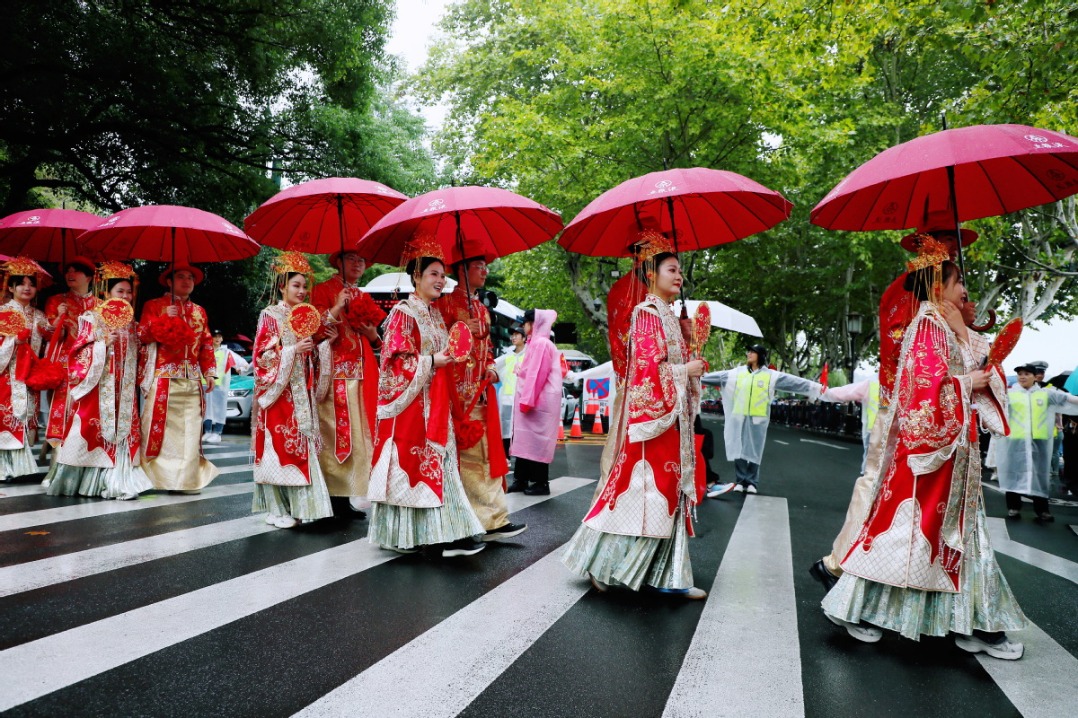The success of 'Black Myth: Wukong' and what it means for the Global South


Recently, the Chinese AAA game Black Myth: Wukong has become a sensation across many countries, quickly topping global gaming platforms like Steam. The fever has extended beyond the game itself. To better enjoy it, many international players have developed an interest in Chinese mythology. This phenomenon has sparked discussions in the international media, with many believing that China has not only benefitted financially, but also promoted its traditional culture in a smart way.
For many in the Global South, it is exhilarating to see China break the long-standing Western dominance in the high-end gaming market and Western gamers embrace traditional Chinese culture. However, many of us do not believe we could achieve something similar, without even entertaining the thought of giving it a try. Why is it the case? Why do we, fellow members of the Global South, lack the courage and confidence to repeat the success? We need to think about it.
Is it because other Global South countries trail in technology? Well, this is certainly an important factor, but shouldn't be much of a problem as it can be easily solved through cooperation with established gaming companies. Many Chinese firms are ready to help, for instance. Is it because of poor marketing? Marketing is indeed important, as evidenced by the success of this Chinese blockbuster game which is backed by not only top-tier production but also the most up-to-date marketing methods. However, marketing should not be an issue either, as there have already been quite a few first class marketing companies in the developing world that are able to accomplish the task. Then is it because of a lack of cultural heritage? Certainly not. Every country has its unique and brilliant cultural heritage with stories as captivating as those of Western cultures and China's Wukong. So, what's missing? It is the confidence in our own culture.
The Global South countries are home to diverse races, ethnic groups, cultures, histories and traditions, each with its own unique and splendid civilization. However, colonial aggression, which plagued the Global South for a long time, has brought economic exploitation, control of local markets, systematic racial violence and deprivation of political rights. Worse still, Western colonizers have deliberately undermined the foundations of our cultures and dulled our sense of cultural sovereignty. By dumping Western cultural products and brainwashing us into acknowledging Western cultural superiority, they have worked relentlessly to destroy our national pride and cultural confidence.
More dishearteningly, even though countries of the Global South have achieved national independence and driven off colonizers through relentless efforts, cultural colonialism continues through various means. Leveraging their strength in the global discourse and communication, some former colonial powers continue implanting the so-called "universal values" and their "model of modernity" into the Global South countries by preaching political ideologies, tightening economic grip and dumping cultural products. Consequently, generation after generation of young people of the Global South have developed a sense of admiration or even worship towards such values. Phenomena such as La Sape, Cargo Cults, Paris syndrome and the adulation of values of Western countries like France and the US are all "gains" of Western cultural colonialism and the "loss" for the Global South.
The conquest of civilization is the most thorough conquest, and the submission to a culture is an out-and-out submission. UNESCO has repeatedly observed that the biggest issue humanity faces in cultural development in the world today is not a lack of resources but rather a limited understanding, misunderstanding and even abandonment of one's own culture. Without cultural confidence and national dignity, Global South countries will be relegated to embellishments on the totem poles of Western culture and nobodies in the international arena. Cultural elements of the Global South are often depicted as exotic supplements to Western values in Western cultural works, such as classic movies like Cleopatra and Lawrence of Arabia, games like Assassin's Creed and God of War, and animated Hollywood movies like Pocahontas and The Lion King.
China, a member of the Global South, has long been a victim of Western colonizers' plundering and bullying, as well as Western cultural infiltration and erosion. But China awakened to this reality earlier than others, and called for building cultural confidence and strength. The country began systematically restoring, protecting, and promoting its traditional culture. In recent years, China has championed the creative transformation and development of its fine traditional culture, and promoted exchanges and mutual learning between the Chinese culture and other cultures. It has also put forward the Global Civilization Initiative. Thanks to these effective measures, Chinese cultural products like The Three-Body Problem, The Wandering Earth, Genshin Impact and Black Myth: Wukong have gained widespread international acclaim in recent years, and the Chinese culture is very much en vogue. China's success shows that when a country has cultural confidence, its traditional culture will burst with tremendous vitality.
This is a key takeaway for other Global South countries. We can follow China's example by delving into and reinvigorating our rich traditional culture with the help of modern technologies and business models. In this way, we can create more distinctive cultural products that showcase our culture in our own way in the international arena, offer the world our perspectives and new intellectual inspirations, and gain a stronger sense of cultural confidence and national dignity. It will be a new yet comprehensive awakening for the Global South — one that seeks not only political and economic autonomy but also spiritual and cultural strength. It will enable the Global South to explore and confidently demonstrate our extraordinary cultures. Moreover, it will allow the rest of the world to appreciate the wisdom, creativity and fruits of all civilizations, thereby enriching the future for mankind.
The author is a Beijing-based international affairs commentator.
The views don't necessarily reflect those of China Daily.
If you have a specific expertise, or would like to share your thought about our stories, then send us your writings at [email protected], and [email protected].


































